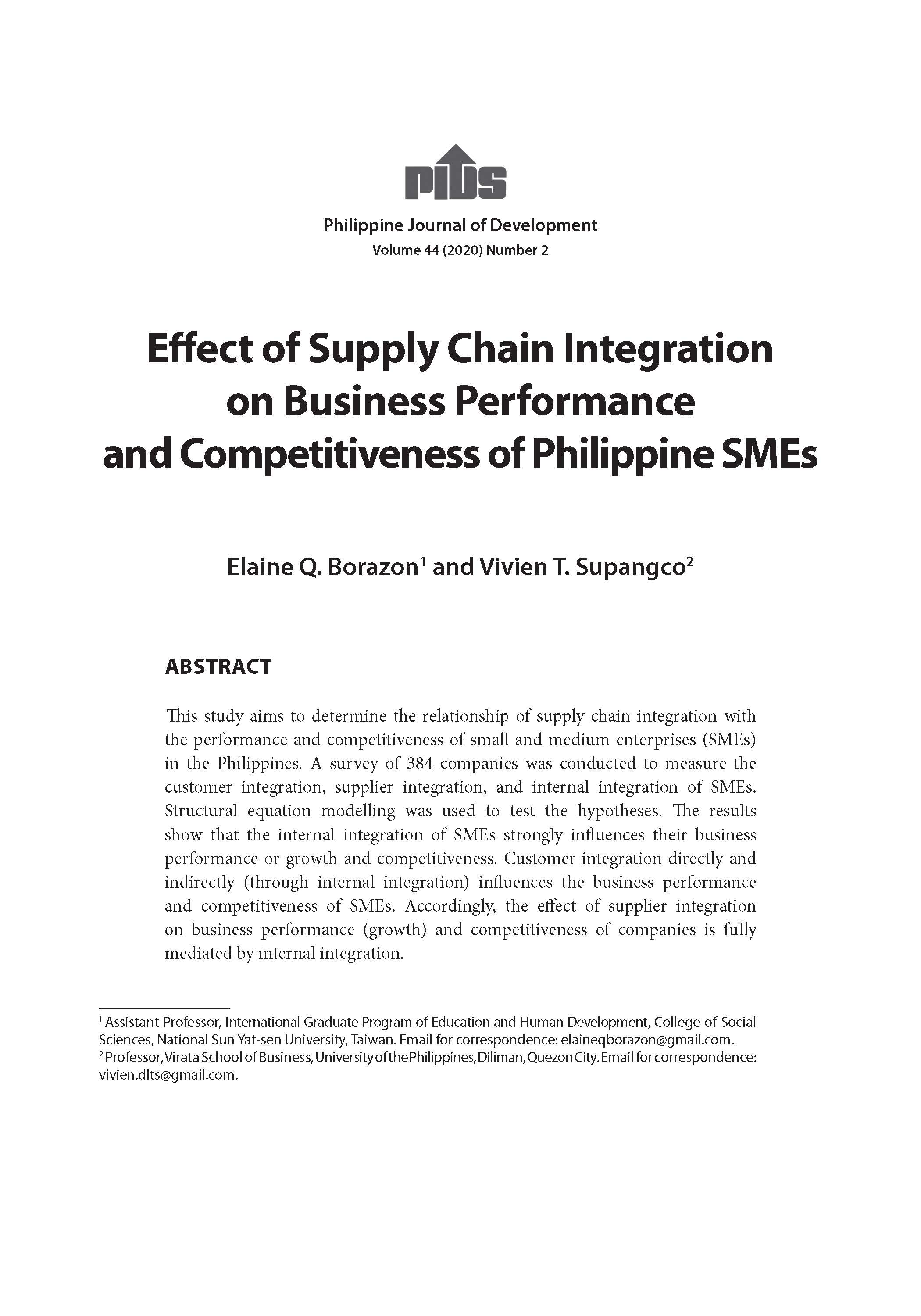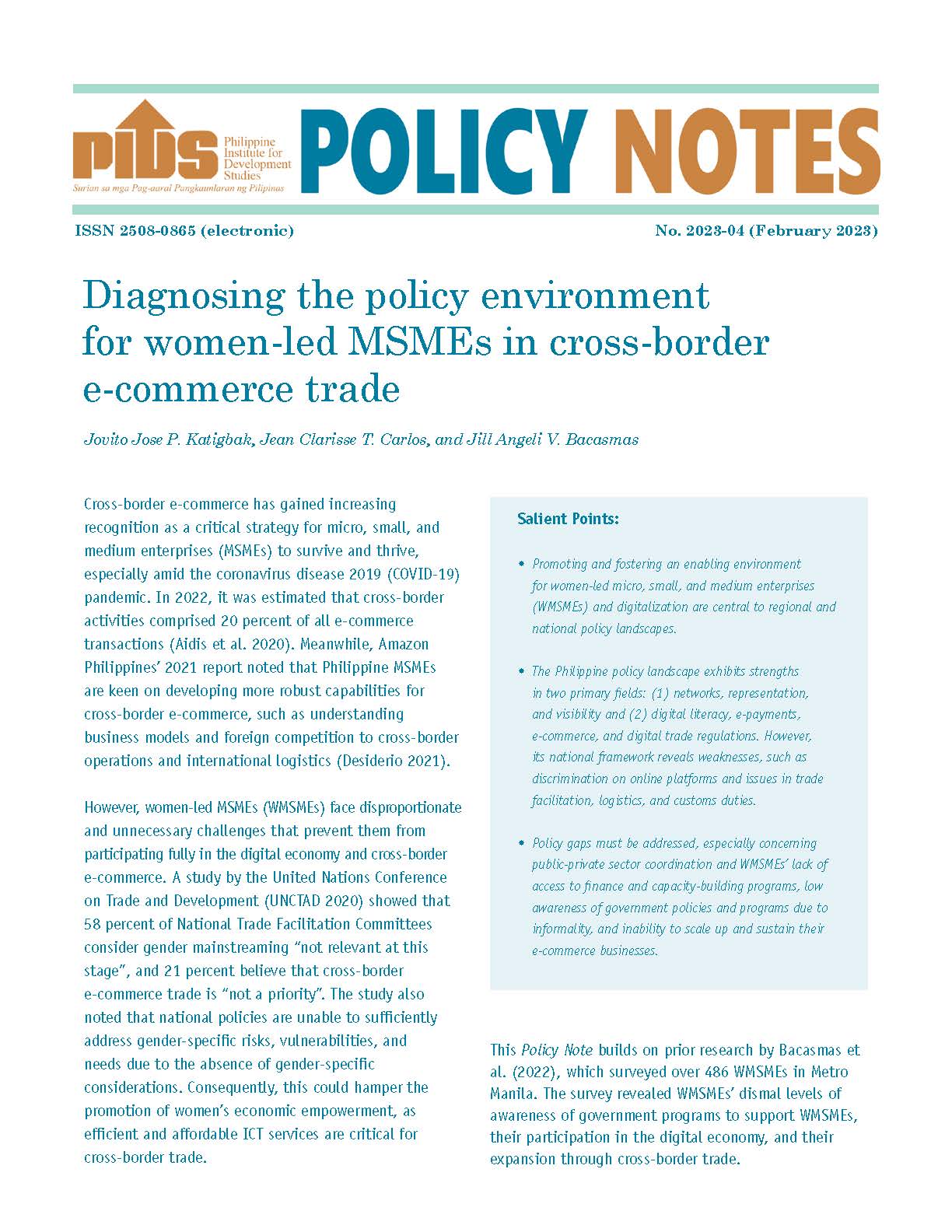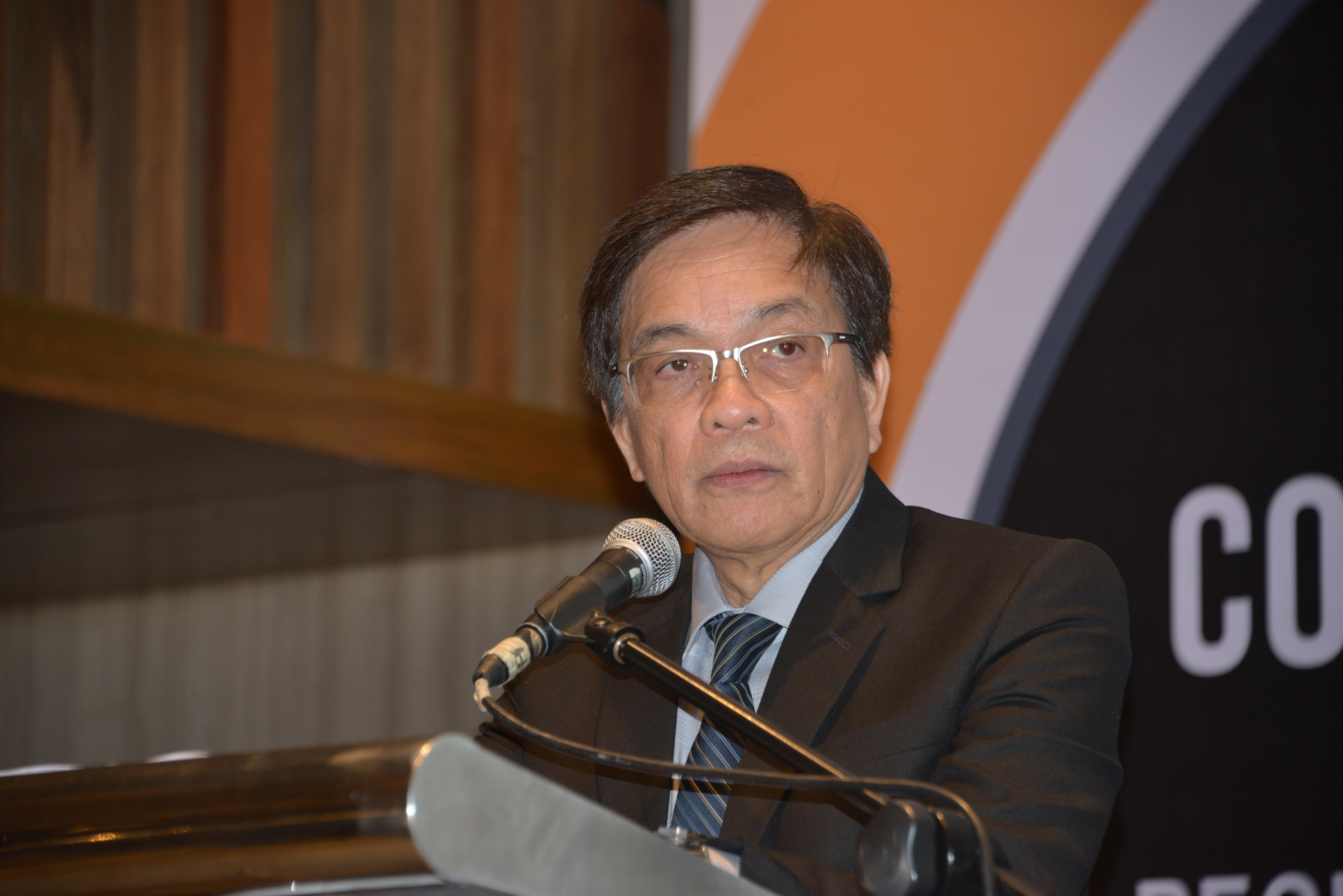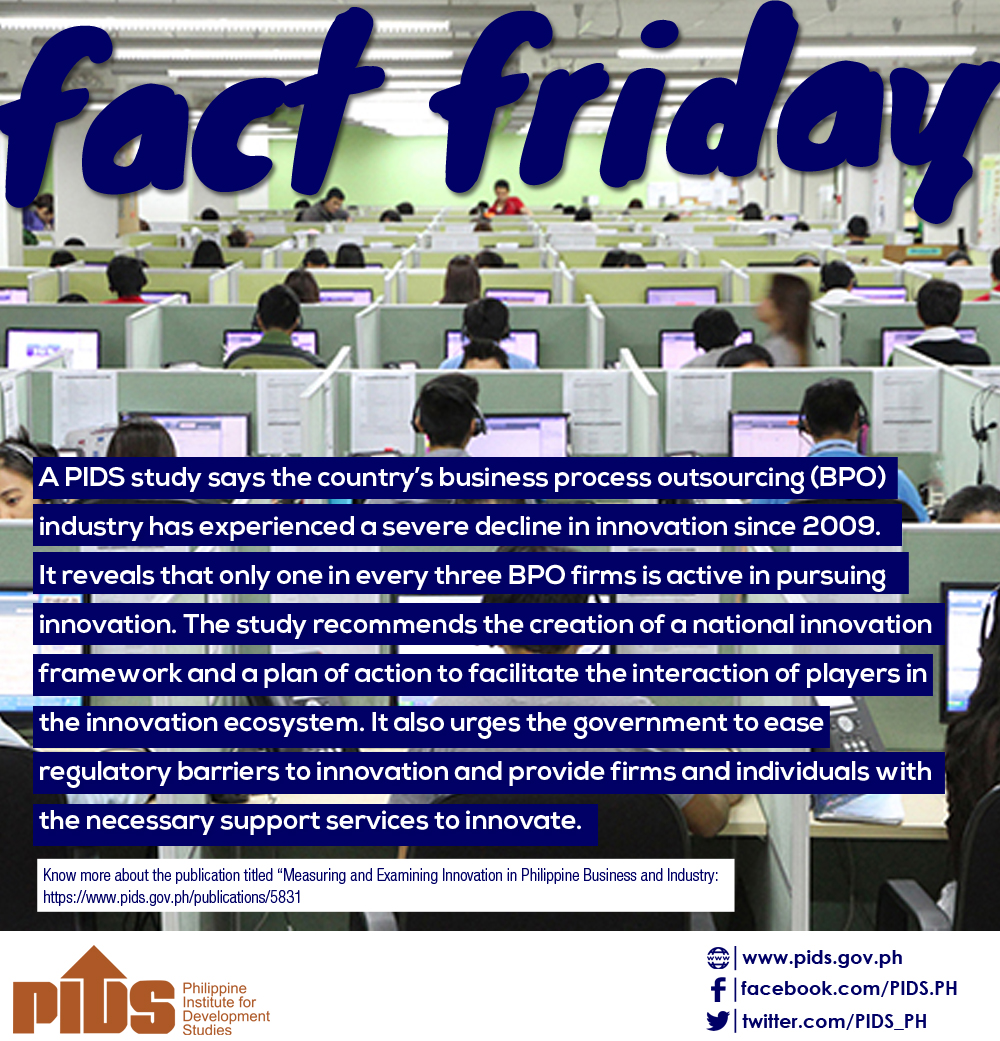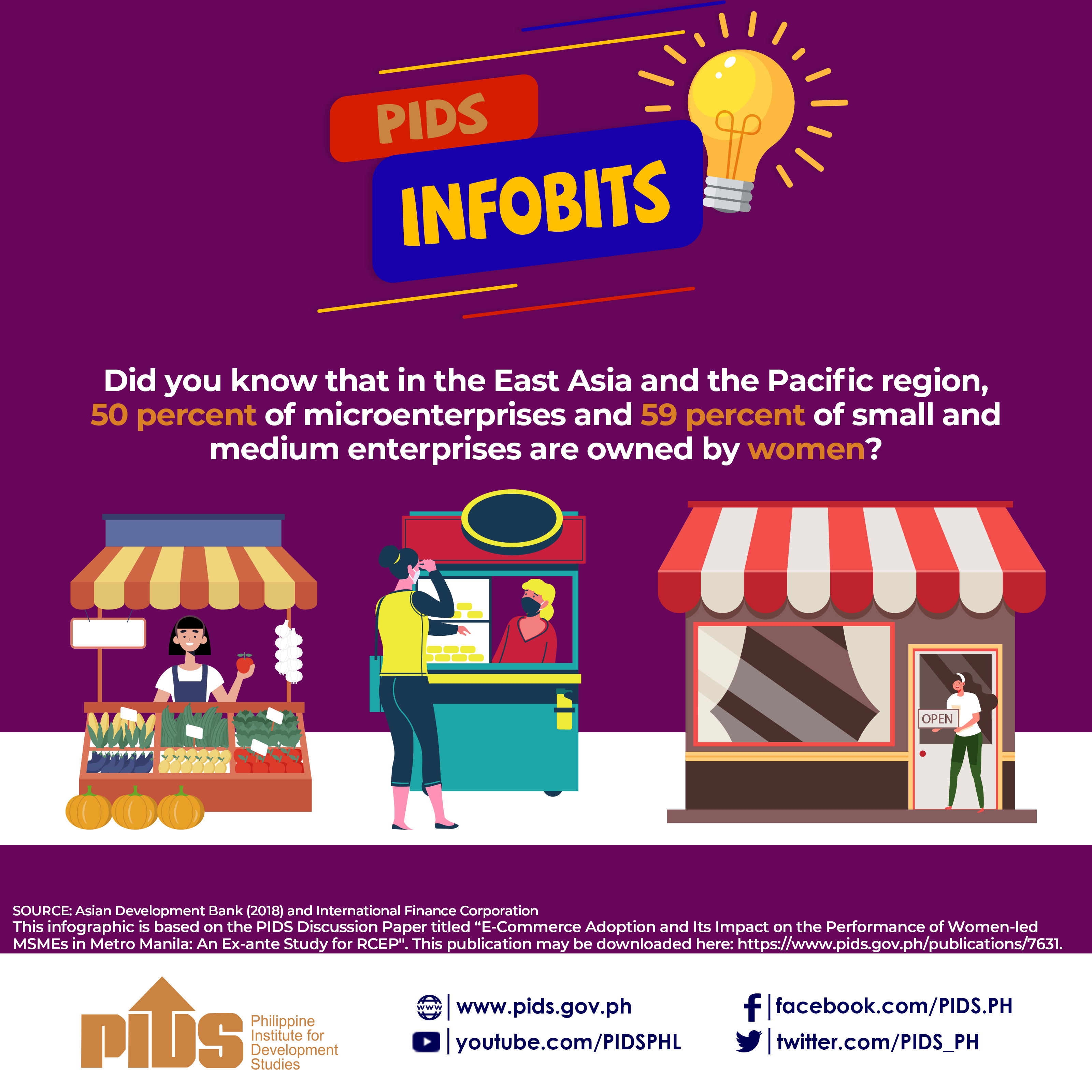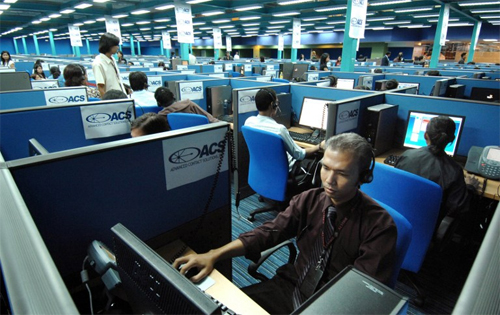
Most Australian firms prefer the Philippines in terms of offshoring opportunities, as opposed to other rival potential business process outsourcing destinations in the region, such as India, according to a study released by state think tank Philippine Institute for Development Studies (PIDS).
Favorable geographical time zone, highly literate workforce, and competitive labor rates are among the reasons Australian firms are attracted to the Philippines for their offshoring needs, according to former PIDS visiting research fellow Peter K. Ross and businessman Mike O'Hagan.
“The time zone in the Philippines favors Australian firms. It is the same as Perth, Western Australia, while there is only a two-hour difference to the Australian Eastern Standard time. This allows Australia-based managers to work with their Philippine-based staff in real time,” they explained.
Likewise, they noted that Australian shifts are also popular with Metro Manila-based BPO workers, as the time difference allows them to arrive and leave work two hours before Metro Manila's main peak traffic times. In terms of geography, the two countries' proximity makes it easier for Australian managers to commute to and from the Philippines with less resources.
“Philippines also has a highly literate and well-educated workforce currently increasing by around 600,000 tertiary graduates, including more than 3,000 public accountants annually. The variety of Filipino tertiary graduates also provides the varied skills that Australian SMEs need, such as the ability to speak in English fluently,” Ross and O'Hagan added.
Meanwhile, offshoring to the Philippines also gives Australian firms huge savings, which the authors approximated to be around 70 percent in terms of labor costs. Based on their estimates, median labor rates in the Philippines for call center type of work is about eight times lower than in Australia.
“While BPO rates are confidential and vary depending on client requirements and the employee's role and experience, evidence from this research suggests that the full cost of an administrative or customer service worker would be around AUD 15,000 to AUD 20,000 per year, less than half of the Australian salary for an equivalent job,” they explained.
However, despite these advantages, the authors cited a number of challenges that the Philippine BPO sector needs to address. Government red tape, conflicting government requirements, poor infrastructure, traffic congestion, expensive and unreliable utilities, and biased adjudication of labor cases are among the red flags identified by the authors.
“Many respondents said incorporating a subsidiary in the Philippines takes a lot longer than the target period of government agencies. They further spend a long time queuing in government offices to get recurring requirements approved. Many respondents also expressed disapproval about the overlapping and sometimes conflicting requirements from different levels of government,” the PIDS study stated.
The lack of transport infrastructure and the high traffic congestion can also discourage potential investors in the Philippines. The study noted that commuting around Metro Manila is time consuming, with many workers spending three to four hours per day traveling to and from their workplace.
On top of these, utilities in the Philippines are expensive and not always reliable, according to Ross and O'Hagan. They noted that most BPOs in Metro Manila have to operate with back-up electricity generators to cover breaks in the electricity supply. They added that firms also pay higher Internet and electricity fees relative to what they would pay for similar services in Australia.
Another stumbling block identified by the study is the extensive labor law provisions in the Philippines that are strictly enforced in the BPO sector. They noted that adjudication of some labor cases tends to be biased in favor of employees.
In conclusion, Ross and O'Hagan said Australian firms represent an important and growing BPO market for the Philippines. Specifically, they noted that the Australian small and medium enterprise (SME) sector provides a relatively large market for the kind of micro-offshoring services being offered by Philippine BPOs.
“Australia has a dynamic and highly competitive SME sector, which comprises 99 percent of its businesses. This sector likewise employs the highest percentage of Australian workforce at 70 percent. Specifically, the small business sector, or firms that have less than 20 workers, employs almost half of the workforce,” the PIDS study stated.
If you wish to know more about this study, you may download a copy of the policy note here: http://dirp4.pids.gov.ph/websitecms/CDN/PUBLICATIONS/pidspn1702.pdf.
Photo credit: Rappler
Favorable geographical time zone, highly literate workforce, and competitive labor rates are among the reasons Australian firms are attracted to the Philippines for their offshoring needs, according to former PIDS visiting research fellow Peter K. Ross and businessman Mike O'Hagan.
“The time zone in the Philippines favors Australian firms. It is the same as Perth, Western Australia, while there is only a two-hour difference to the Australian Eastern Standard time. This allows Australia-based managers to work with their Philippine-based staff in real time,” they explained.
Likewise, they noted that Australian shifts are also popular with Metro Manila-based BPO workers, as the time difference allows them to arrive and leave work two hours before Metro Manila's main peak traffic times. In terms of geography, the two countries' proximity makes it easier for Australian managers to commute to and from the Philippines with less resources.
“Philippines also has a highly literate and well-educated workforce currently increasing by around 600,000 tertiary graduates, including more than 3,000 public accountants annually. The variety of Filipino tertiary graduates also provides the varied skills that Australian SMEs need, such as the ability to speak in English fluently,” Ross and O'Hagan added.
Meanwhile, offshoring to the Philippines also gives Australian firms huge savings, which the authors approximated to be around 70 percent in terms of labor costs. Based on their estimates, median labor rates in the Philippines for call center type of work is about eight times lower than in Australia.
“While BPO rates are confidential and vary depending on client requirements and the employee's role and experience, evidence from this research suggests that the full cost of an administrative or customer service worker would be around AUD 15,000 to AUD 20,000 per year, less than half of the Australian salary for an equivalent job,” they explained.
However, despite these advantages, the authors cited a number of challenges that the Philippine BPO sector needs to address. Government red tape, conflicting government requirements, poor infrastructure, traffic congestion, expensive and unreliable utilities, and biased adjudication of labor cases are among the red flags identified by the authors.
“Many respondents said incorporating a subsidiary in the Philippines takes a lot longer than the target period of government agencies. They further spend a long time queuing in government offices to get recurring requirements approved. Many respondents also expressed disapproval about the overlapping and sometimes conflicting requirements from different levels of government,” the PIDS study stated.
The lack of transport infrastructure and the high traffic congestion can also discourage potential investors in the Philippines. The study noted that commuting around Metro Manila is time consuming, with many workers spending three to four hours per day traveling to and from their workplace.
On top of these, utilities in the Philippines are expensive and not always reliable, according to Ross and O'Hagan. They noted that most BPOs in Metro Manila have to operate with back-up electricity generators to cover breaks in the electricity supply. They added that firms also pay higher Internet and electricity fees relative to what they would pay for similar services in Australia.
Another stumbling block identified by the study is the extensive labor law provisions in the Philippines that are strictly enforced in the BPO sector. They noted that adjudication of some labor cases tends to be biased in favor of employees.
In conclusion, Ross and O'Hagan said Australian firms represent an important and growing BPO market for the Philippines. Specifically, they noted that the Australian small and medium enterprise (SME) sector provides a relatively large market for the kind of micro-offshoring services being offered by Philippine BPOs.
“Australia has a dynamic and highly competitive SME sector, which comprises 99 percent of its businesses. This sector likewise employs the highest percentage of Australian workforce at 70 percent. Specifically, the small business sector, or firms that have less than 20 workers, employs almost half of the workforce,” the PIDS study stated.
If you wish to know more about this study, you may download a copy of the policy note here: http://dirp4.pids.gov.ph/websitecms/CDN/PUBLICATIONS/pidspn1702.pdf.
Photo credit: Rappler


